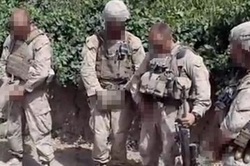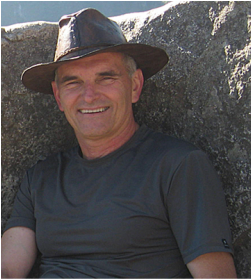 US Soldiers abusing dead Afghanistan soldiers _ Does it never strike you as puzzling that it is wicked to kill one person, but glorious to kill ten thousand?” -Lewis Richardson, Historian I have been in a nasty knot lately in reading Steven Pinker’s book, “The Better Angels of our Nature.” I want to believe that his premise is right, that we are becoming substantially less violent as human beings since we first crawled out of the sea. But my experience tells me otherwise. Yet, his relentless presentation of research is chipping slowly away at my long-held convictions. He hasn’t won me over yet, but I am only on page 206, with 490 pages still to go. When I was 18, a time in life when moral clarity was at its zenith, I filed with the draft board as a Conscientious Objector. I believed in Lewis Richardson’s Quaker perspective as expressed in this opening quote, and firmly opposed all wars. The Vietnam War was raging and I was not about to go off to kill for what our country’s leaders believed was right. Ten years later I traveled to Israel, got my first taste of what daily hatred and fear on all sides was like, and wondered if I would pick up a gun if I lived there as a Palestinian, or as a Jew. This was my first bitter taste of a complex world where one’s humanity is slowly drained until moral clarity vanishes. This week, in my role as a Media Mentor for Soliya, an exciting international organization training youth leaders in the Middle East and in the West, I reviewed the moving interview shown here of a US soldier, Thomas, just back from Afghanistan. It was produced by Ryan, a friend of his, and one of the Soliya youth leaders. Thomas spoke about how he stayed with a mortally wounded Afghan soldier, and despite fighting on opposing armies, he comforted him in his dying hours. The next day I read the headlines of the US soldiers who urinated on three Afghanistani’s who had just died, also captured on video. For me, the question no longer is about Just Wars. It is also about how we maintain our humanity in the face of injustice. It is about how we respond to situations in which there is no longer a correct moral choice, but instead only terrible choices. I feel so grateful that Thomas was able to talk about that experience, and Ryan was able to record it. Thomas found a way to retain some humanity in an inhumane environment. The other US Soldiers also recorded their actions, revealing their inability to retain theirs. Unfortunately we humans are destined to be confronted with circumstances where only terrible choices exist. Yet, if we have more of us responding like Ryan’s friend, over time I think Pinker may be proved right.
4 Comments
|
AuthorGreg Tuke teaches and travels internationally, working with university faculty in India, Indonesia and the MIddle East, sharing strategies for implementing international collaborations within course work. This blog chronicles key experiences and insights about those experiences. All opinions expressed are mine, and represent no other institutional affiliation. Archives
March 2020
Categories |


 RSS Feed
RSS Feed